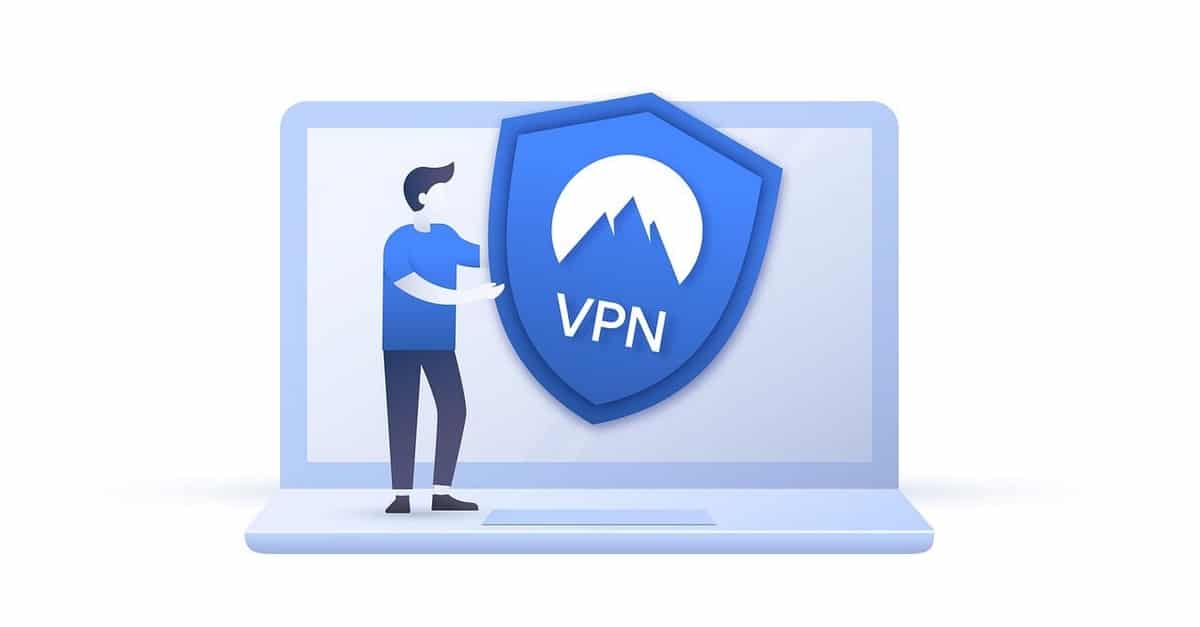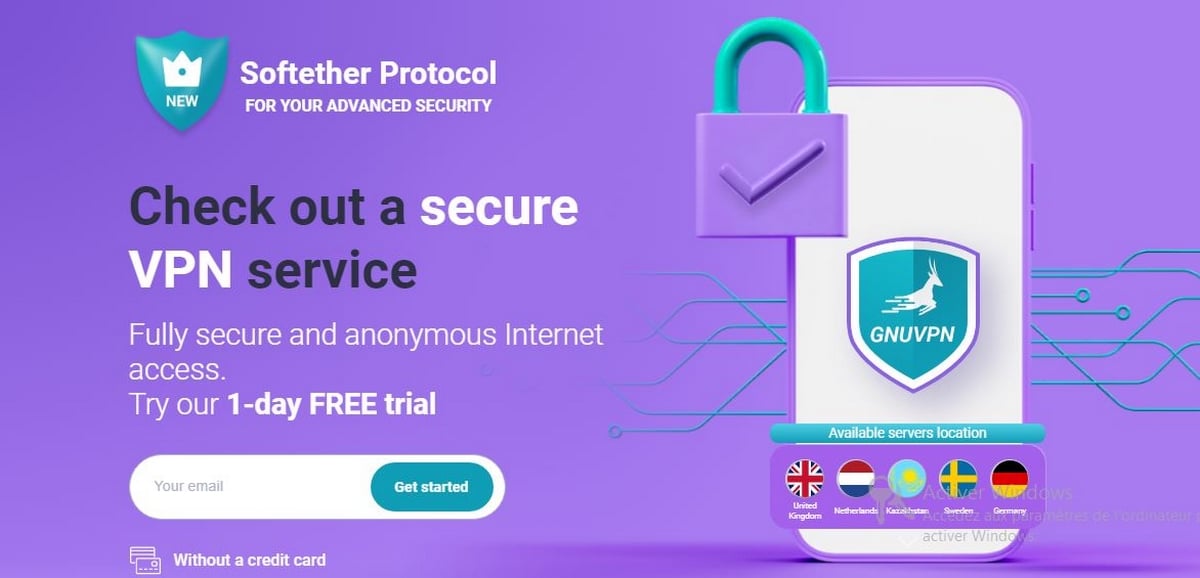VPN blocking is a topical issue that has become central to today's Internet. With growing interest in online privacy and security, users are increasingly turning to VPN services to protect their personal information and access blocked resources. However, in response, many states and ISPs are taking steps to block VPN services and their infrastructure.
In this article, we'll look at what VPN blocks are, how they're implemented, and what methods are used to get around them. We'll also look at the technological innovations that enable VPNs to be used everywhere.

Who and how do you block VPN services?
VPN services such as GnuVPN can be blocked by various parties, including :
- Government authorities: some countries and governments block VPNs in order to control citizens' access to certain resources or content. This may be linked to Internet censorship or a desire to monitor user activity.
- ISPs: In some cases, ISPs may block VPN servers or ports used for VPN traffic. This may be due to regulatory requirements or the desire to provide security services to their customers.
- Companies and organizations: Some companies and organizations may block VPNs in their corporate networks to guarantee security and control of access to information.
- Websites and online services: Some online services and websites may block access from IP addresses belonging to VPN services known to prevent access to their resources via a VPN.%¨¨
By the way, if you're looking for tips for get NordVPN for freeI invite you to take a look at the article to discover some useful methods and tips.
Such blocking can aim to restrict access to sites censored or undesirable by the authorities, as well as to control citizens' online activity. There are several VPN blocking methods that can be used to restrict or prohibit access to VPN servers and services. Here is a more detailed description of these methods:
- IP address blocking: This method involves blocking known IP addresses of VPN servers. However, this is an ineffective method of blocking, as VPN providers can quickly change the IP addresses of their servers. So even if one IP address is blocked, users can easily switch to another.
- Port blocking: VPN traffic often uses specific ports to transmit data. Blocking these ports can restrict access to the VPN. For example, the most commonly used port for OpenVPN is 1194. However, users and VPN providers can also reconfigure ports, making this method less effective.
- Deep Packet Inspection (DPI): This method enables ISPs or governments to detect and block VPN traffic by analyzing it for distinctive characteristics. DPI can recognize traffic patterns typical of VPN connections. However, with the development of obfuscation technologies, DPI is becoming a less effective method.
- Blocking DNS requests: Authorities may try to block access to the DNS servers used by VPNs to redirect traffic. However, users can configure their own DNS servers or use alternative methods to bypass this block.
- Banning VPN websites: States can block websites that provide information about VPNs or VPN services themselves. This can prevent access to VPN-related resources and make it more difficult to install VPN clients.

It's worth noting that VPN blocking is a complex task, and many VPN users and providers are actively working on developing methods to circumvent such blocking.
Methods for getting around blockages
To get around VPN blocks, there are several effective methods that users and VPN providers are actively using:
- Use of obfuscation: Some VPN services offer obfuscation technologies that alter the appearance of VPN traffic to make it look similar to normal Internet traffic. This tricks Deep Packet Inspection (DPI) systems that might try to detect and block VPN connections. Obfuscation makes traffic more opaque to monitoring systems.
- Use of non-standard ports: VPN traffic generally uses standardized ports to send data. Changing the ports used for the VPN connection can help avoid blocking. For example, if the standard port for OpenVPN is 1194, you can change it to a non-standard port that will be less likely to be blocked.
- Use of proxy servers: Proxy servers can be used to redirect traffic via a VPN, bypassing blocking. This adds an extra level of anonymity and protection to your Internet connection, as proxy servers can be located in countries where there are no restrictions on VPN use.
- Using multiple VPNs: Some users adopt a multiple VPN services strategy, combining several VPN connections. This would make the blocking task much more difficult, as all the VPN services used would have to be blocked simultaneously, which is a much more complex task for service providers and authorities alike.
- Using tunneling via SSH or SSL: These methods encapsulate VPN traffic within traffic that looks like normal SSL or SSH traffic. As a result, DPI systems may not recognize VPN traffic, making blocking more difficult.
The fight against VPN blocking is an ongoing process. VPN providers and users are constantly developing new circumvention methods, while authorities and service providers are stepping up their efforts to detect and block them. This "battle" is ongoing, and the outcome depends on the technical knowledge and resources of each party. In this context, GnuVPN and the new SoftEther protocol are important tools for ensuring Internet access and guaranteeing users' security and anonymity.
Don't miss our detailed analysis of SurfsharkVPN ! Click now to find out more about this online security service.
The benefits of GnuVPN
The advantages of GnuVPN are numerous, making it a modern and versatile VPN service, offering users a wide range of features and benefits to ensure a secure and confidential Internet connection. This VPN service is a powerful tool designed to meet the needs of today's users, and boasts a number of outstanding features and benefits.
Here are the main advantages and features of GnuVPN:
- Cross-platform compatibility: GnuVPN supports multiple operating systems and devices, including Windows, macOS, Android and iOS. This means you can use GnuVPN on your computer, smartphone, tablet and other devices.
- Security and privacy: GnuVPN offers a high level of encryption to protect your data and online activity. This is essential to prevent leakage of personal information and protect you against cyber threats such as hackers and cyber attacks.
- Numerous servers worldwide: GnuVPN offers access to servers in over 15 countries worldwide. This allows you to choose a server in the location of your choice, bypassing geographical restrictions and accessing content that may be unavailable in your region.
- Unlimited Internet connection: GnuVPN offers a high-speed Internet connection, so you can enjoy video streaming and data exchange without restriction or interruption.
- Updates and support: The GnuVPN development team is constantly working on updates and improvements to the service. This includes updates to application features, configurations and integrations of new technologies such as the SoftEther protocol.
- High level of anonymity: GnuVPN does not track your online activity or share your data with third parties. This guarantees your anonymity and confidentiality online.
- Ability to connect multiple devices simultaneously: With a single GnuVPN account, you can connect up to 5 devices simultaneously, making it an excellent choice for families and multi-user scenarios.
- Reliability and stability: GnuVPN ensures a stable, reliable connection, guaranteeing that you'll stay online at all times and be able to carry out online activities without interruption.
- Ease of use: GnuVPN's interface is intuitive and user-friendly, making it a suitable option even for beginners.
In addition to all the above, GnuVPN has an additional advantage that makes it an innovative solution in today's context: the use of the unique SoftEther protocol.
- Want to find out more about GnutVPN and discover all its services?

More information on SoftEther
Recently, the developer team introduced an enhanced version of its application, which includes the ability to configure connections using the advanced SoftEther protocol. This update has given GnuVPN an incredible advantage and extended its functionality.
The most significant feature of the enhanced version of the GnuVPN application is the use of advanced protocol to establish connections. The developers have put a lot of effort into creating a protocol that is virtually indistinguishable from normal Internet traffic. This ensures high-quality masking of your connection, making detection and blocking of the service virtually impossible. While most firewalls and blocking systems actively monitor and block VPN services, GnuVPN's enhanced version reinforces its imperceptibility, giving it an insurmountable advantage.
One of the key features of this enhanced GnuVPN client is the seriousness of the connection protocol. Particular attention has been paid to creating a protocol that is as close as possible to normal Internet traffic. This guarantees reliable masking of the connection, making it difficult to detect or block. Given the active attempts of many firewalls and VPN blocking systems to track and restrict them, this feature increases the level of stealth and accessibility of connections.
Now GnuVPN users can manage all their connections, including standard VPN servers and their own OpenVPN servers, using a single, easy-to-use application. No need to switch between VPN applications, and no need to launch multiple applications to manage different connection types. All this is available in GnuVPN's user-friendly interface. GnuVPN's ease of recharging
In addition to all the other benefits, we can add another point: payment options, including anonymous options. GnuVPN does everything in its power to make using and paying for its services as convenient as possible for its users. The company offers a variety of payment methods to meet the varied needs of users. You can make payment in a number of ways, including:
- VISA/MasterCard/UnionPay: GnuVPN accepts payment by all major credit cards, including VISA, MasterCard and UnionPay. This means users can easily pay for their subscriptions with their credit or debit card.
- Bitcoin and other cryptocurrencies: For those who prefer anonymity and an extra level of privacy, GnuVPN accepts payments in cryptocurrencies. Bitcoin and other cryptocurrencies allow users to make transactions without disclosing personal information, making payment even more secure and private.
- GooglePay and ApplePay: For users of Android and iOS mobile devices, GnuVPN also offers a convenient payment option via GooglePay and ApplePay. This enables payments to be made with a few keystrokes using data stored in mobile wallets.
The ease with which GnuVPN accounts can be topped up allows users to choose the payment method that suits them best, and offers flexibility in the use of the service. It also underlines GnuVPN's attention to user security and privacy, offering anonymous and secure payment methods for those who value their privacy.
In a nutshell
GnuVPN is constantly striving to innovate and improve its services to offer users the best virtual private network experience. With the latest SoftEther protocol, GnuVPN raises the bar on the security, reliability and discretion of its connections to a new level.
We invite you to join hundreds of thousands of users who have already enjoyed the benefits of GnuVPN and its advanced features. Don't miss the opportunity to enhance your online experience and ensure maximum security and privacy on the Internet.
Test the latest SoftEther protocol today and see for yourself its efficiency and convenience. The team of developers works hard to ensure that GnuVPN remains your reliable companion in the world of digital possibilities. Try GnuVPN and feel the difference in your online experience today.






